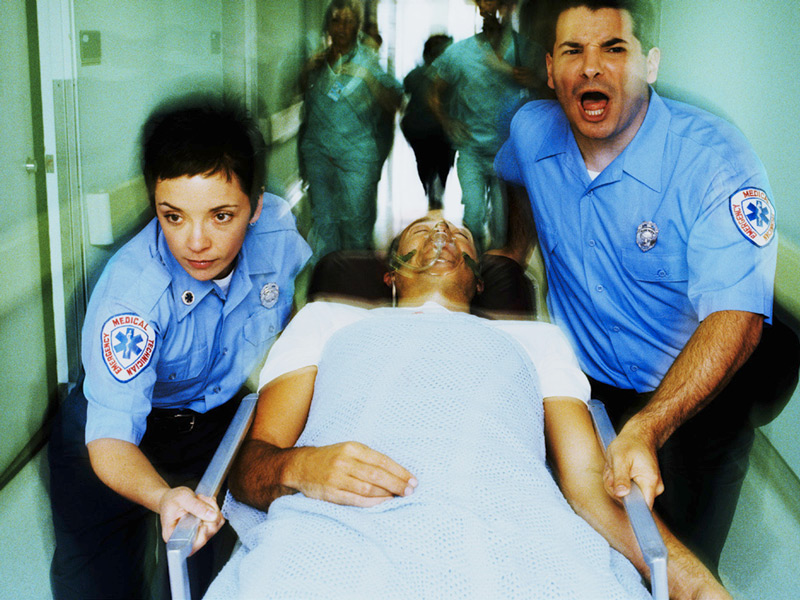It would not surprise most people to learn that, according to multiple studies, emergency service workers, firefighters, police officers and 9-1-1 dispatchers all routinely make the top 10 list of the most stressful jobs in the country. Most people understand that those who work as first responders, who come into direct contact with trauma, suffering and death, would be directly impacted by these experiences. What many people may not be aware of is the extent to which this stress often leads to mental health problems in the form of depression, acute stress disorders, post traumatic stress disorders, substance abuse and even suicide. Additionally, most people would be shocked to learn that, very often, these workers, who dedicate their lives to protecting others, often suffer alone. Not surprisingly, those who enter into this field seem preloaded with internal grounding mechanisms to deal with tragedies on a regular basis. That being the case, the following issues, when added to the inherent dangers of the job, can create a perfect stress storm that weakens their resilience:
- Shift work
- Sleep deprivation
- Inadequate training
- Technical problems
- Bad crews
- Malicious coworkers
- Inconsistent policies
- Family problems
- Poor leadership

Nationally, this leads to these alarming statistics:
- Police officers going through a divorce are five times more likely to commit suicide than an officer in a stable marriage.
- Twice as many police officers die by their own hand as do in the line of duty.
- Most officers who commit suicide have no history of having sought counseling.
- Fire departments are three times more likely to experience a firefighter suicide than a line of duty death.
- Emergency dispatchers endure stress at levels higher than in most professions and the risk of traumatic stress disorders is significantly higher than for the general public.
These realities have drawn the attention of local departments in Hampton Roads and have led to the creation of peer support and critical incident stress management (CISM) teams in the cities of Hampton and Newport News. Lt. Sidney Lucas, coordinator of the Newport News Fire Department team, echoes these concerns. He states that, “In six months of starting our support program, we’ve already assisted a number of our workers, many of whom are seeking calls so much that stress them out, as much as the other things that go on in life, but I’m sure the calls do have an impact on those issues.”
Captain Jill Daszkowski, CISM team commander for the Newport News Police Department, agrees with Lucas regarding the need for services for first responders. She points to the isolation that many officers feel while on duty, the growing public scrutiny and internal procedures that “leave no room for human error,” as added stressors. Fortunately, there is growing awareness within the profession that the old school approach of staying silent and “sucking it up” not only no longer works, it never was a functional method for coping with the routine challenges of this service. This awareness, however, does not mean that first responders are flocking to therapist’s offices or seeking out the assistance of trained peers who act as stress first aid workers.
The reluctance of first responders to admit to mental health issues and actively seek treatment has deep roots within the public safety culture. The cultural attitude that asking for help is a sign of weakness–reinforced by the mantra, “We solve problems, we don’t have problems”–is alive and well. Many in this field also worry about the negative impact on how they are viewed by supervisors and on opportunities for promotion if they seek help. Additionally, the attitude of “You can’t help us if you aren’t one of us” creates a reluctance to bestow mental health professionals with an invitation into their culture and speaks to the misconceptions about counseling and psychotherapy.
To be fair, the mental health community, of which I am a member, has failed to work through this resistance. We struggle to get behind the shield, and make the case that, like first responders, we are trained to respond to crises and are equipped with the necessary tools to protect them from the ravages of stress while they protect and serve. According to both Lucas and Daszkowski, mental health professionals can help alleviate the silent suffering by “reaching out to our folks” and providing more than just diagnostic assessments and treatment for advanced stress disorders. Working in concert with the growing number of peer support programs, mental health professionals can teach first responders that their avoidance of mental health treatment puts them in harm’s way.
On a broader level, departments responsible for hiring, training and retaining first responders need to actively engage in promoting mental health awareness, support the use of employee assistance programs and strive to actively change the culture from within. Both Daszkowski and Lucas agree a shift is taking place and that seeking help in no longer as taboo as in the past, while also admitting that a true cultural change could take years. What is also true, as evidenced by the impact of their programs, is that any one individual need not wait for that change and, instead, can be the “rebel” who steps out from behind the shield and asks for help. In this way, caring for self can carry as much pride, dignity and respect as caring for others.

Resources:
NAEMT Mental Health Resource Library – To assist EMS practitioners in recognizing, managing and seeking assistance for mental health issues, NAEMT has compiled a resource library of articles, tips and other information about suicide prevention, mental health first aid, and building emotional resiliency. Find the resources at naemt.org, under the EMS Health & Safety tab. We urge you to use these resources to learn more about mental health issues, and to share them widely with your colleagues.
Code Green Campaign – Visit codegreencampaign.org to read about others’ experiences with mental health issues, and for a list of mental health resources.
Safe Call Now – (206) 459-3020. A 24/7 hotline and referral service for first responders and their family members to speak confidentially with other first responders who are trained in mental health crisis counseling. They can assist with treatment options for responders who are suffering from mental health, substance abuse and other personal issues. Visit safecallnow.org.
National Suicide Prevention Lifeline – (800) 273-8255 . Available 24/7, the national suicide hotline will connect you with a trained, experienced crisis counselor who is ready to listen and connect you with mental health services in your area. Visit suicidepreventionlifeline.org.







